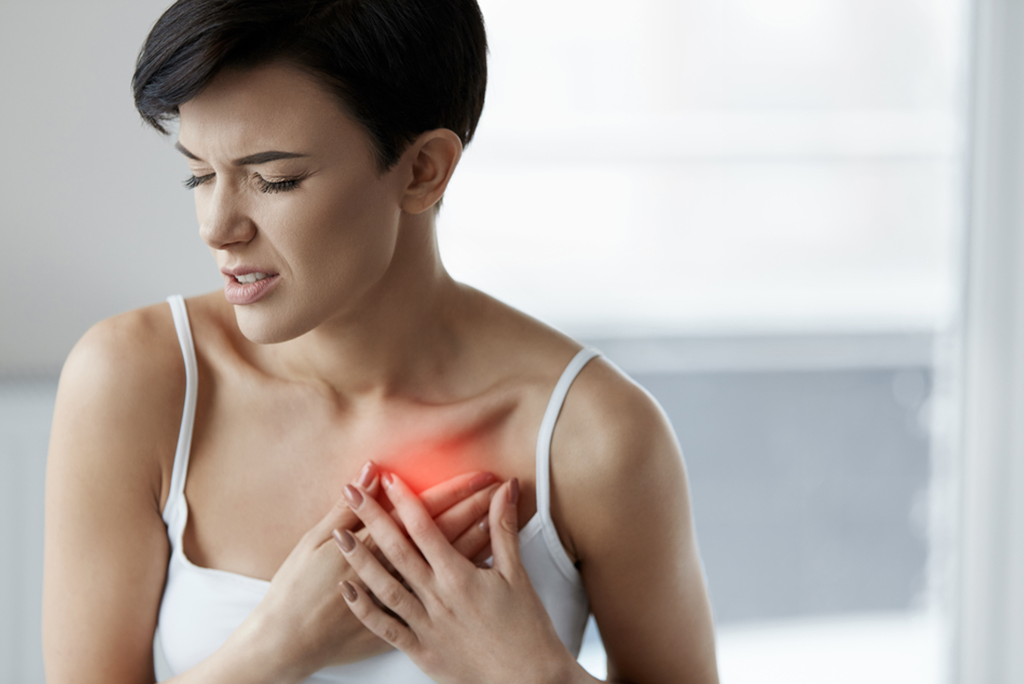Many people are familiar with classic symptoms of a heart attack, such as chest pain radiating down the arm. However, when it comes to heart attack symptoms in women, the signs can be much subtler, making them easier to overlook. Recognizing these unique symptoms is paramount for immediate medical intervention and improved outcomes.
Subtle Symptoms Often Overlooked
Unlike the dramatic chest-clutching scenes depicted in movies, many women experience more understated signs of a heart attack. These might include shortness of breath, unexplained fatigue, or even discomfort in the neck or jaw. Due to their non-specific nature, these symptoms can be misattributed to other conditions, leading to potential delays in seeking treatment.
Chest Pain: Not Always the Main Indicator
While chest pain is a prevalent symptom for both men and women, it’s essential to understand that its nature and location can vary among women. Some might describe the sensation as pressure or tightness rather than sharp pain, and it might be more pronounced in areas other than directly over the heart.
Upper Body Discomfort Beyond the Chest
One of the more telling signs of heart attack in women is discomfort in areas of the upper body other than the chest. This can manifest as pain or unease in one or both arms, the neck, the jaw, or even the upper part of the stomach. Such dispersed symptoms can confuse both the person experiencing them and those around them.
Digestive Disturbances
Some women may experience symptoms that seem more related to the digestive system than the cardiovascular one. These can range from heartburn, indigestion, or even nausea and vomiting. While these might seem benign or unrelated, they can be significant indicators of a heart event.
Breathlessness and Lightheadedness
Another symptom more commonly seen in women is shortness of breath, with or without chest discomfort. Some might feel like they’ve run a marathon even if they haven’t moved. This could be accompanied by a cold sweat or dizziness, further pointing to a possible heart attack.
Unexplained Fatigue
In the days or even weeks leading up to a heart attack, some women report feeling unusually tired. This isn’t just regular fatigue after a long day; it’s an overwhelming and persistent sense of exhaustion that can’t be explained by activity or other causes.
Back Pain: A Surprising Symptom
Back pain, particularly in the upper back, can be an unexpected symptom of a heart attack in women. It might come and go, or it can be constant, adding to the confusion about its cause. It’s essential not to dismiss such pain, especially if it’s accompanied by other symptoms.
Importance of Awareness and Timely Action
Given the range of symptoms and their often subtle nature, it’s clear why many women, and even some medical professionals, might misinterpret them. Increasing awareness about these signs among women and their loved ones can lead to faster recognition, quicker medical intervention, and, ultimately, better outcomes.
The Role of Risk Factors in Women
Several risk factors make women more susceptible to heart disease and nuanced symptoms. Hormonal changes during menopause, for example, can affect the heart’s arteries and increase heart attack risks. Additionally, conditions like polycystic ovary syndrome (PCOS) or gestational diabetes can elevate the risks of cardiovascular issues in women. Recognizing the intertwining of these risk factors with heart health can provide clarity on heart attack symptoms in women.
Emotional Stress and Heart Health
It’s also worth noting that heart attack symptoms in women can sometimes be triggered or exacerbated by emotional stress. Conditions such as anxiety or depression can manifest physically, leading to symptoms that mimic those of a heart attack. However, the link between emotional health and heart health is evident. Chronic stress, for instance, can lead to inflammation and other cardiovascular problems over time. Therefore, addressing emotional well-being is integral to ensuring comprehensive heart health.
Empowerment through Knowledge
Empowering women with knowledge about these nuanced symptoms and the factors that increase their risks can make a significant difference. It not only facilitates quicker action when a heart event is suspected but also paves the way for preventative strategies. From lifestyle changes, like adopting a heart-healthy diet and regular exercise, to regular health check-ups, the more informed women are, the better equipped they’ll be to protect their heart health.
Tools for Proactive Monitoring
In the journey to prioritize one’s cardiovascular health, awareness of symptoms is just the first step. Adopting proactive measures is equally vital. The Viedial app serves as a practical tool to help you find out your risk, monitor and manage heart health, ensuring that one stays ahead in their quest for a holistic preventive heart health solution. Remember, that prevention is key.




